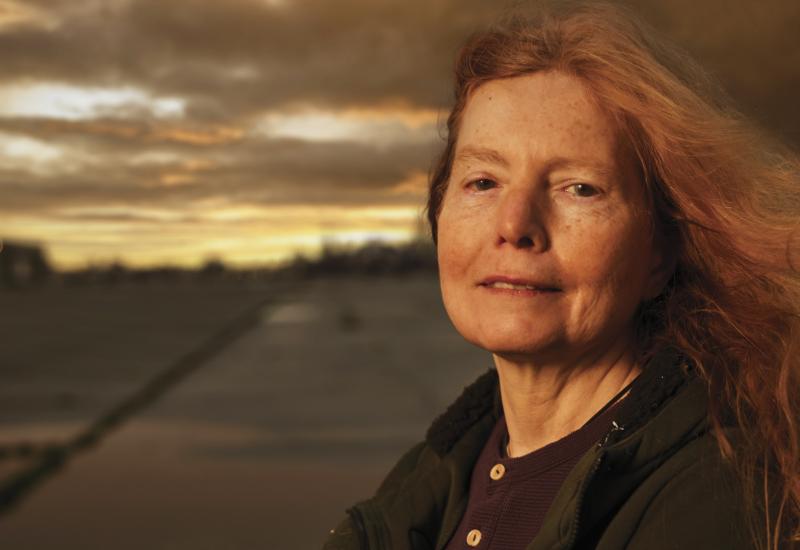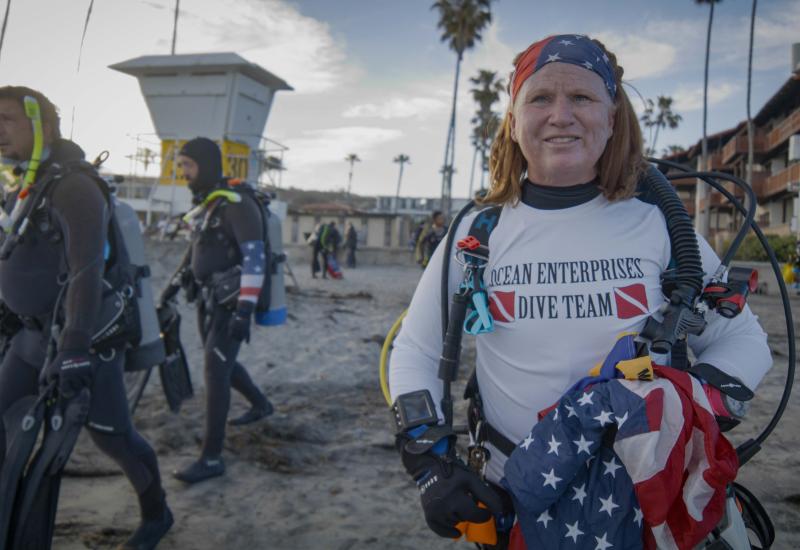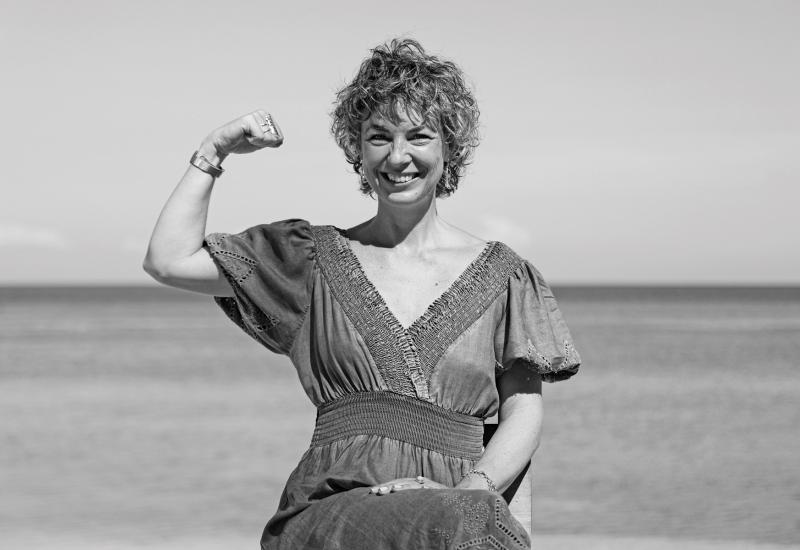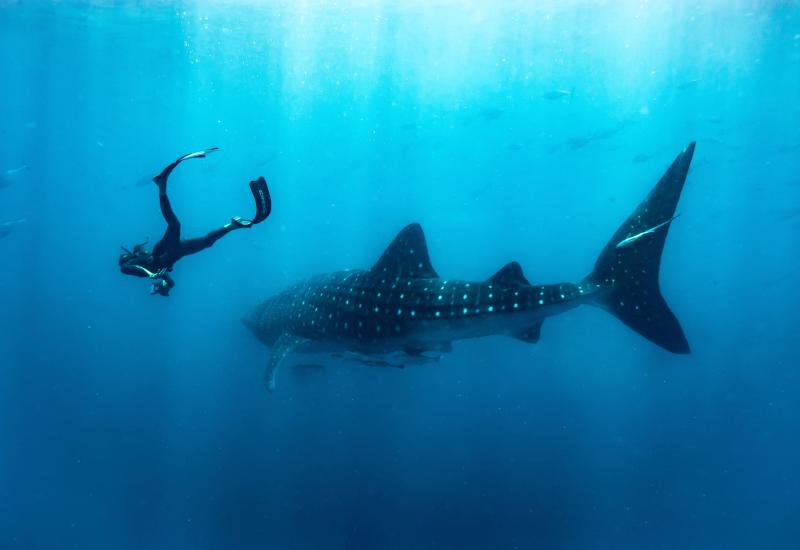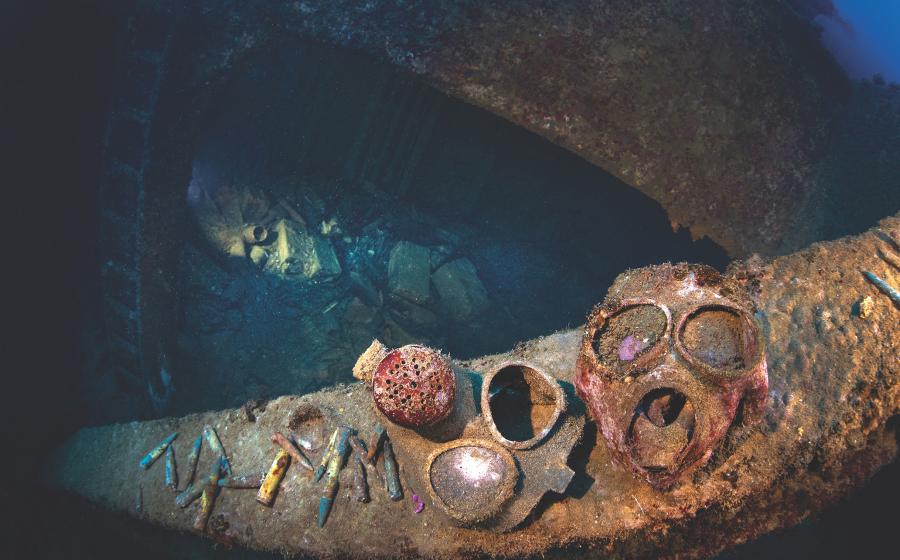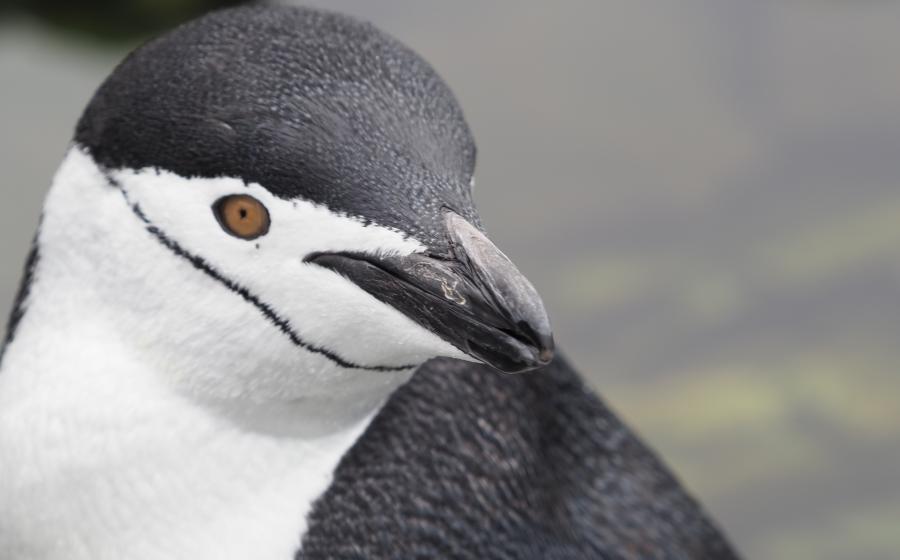Goliath Grouper Advocate Shana Phelan Named November Sea Hero
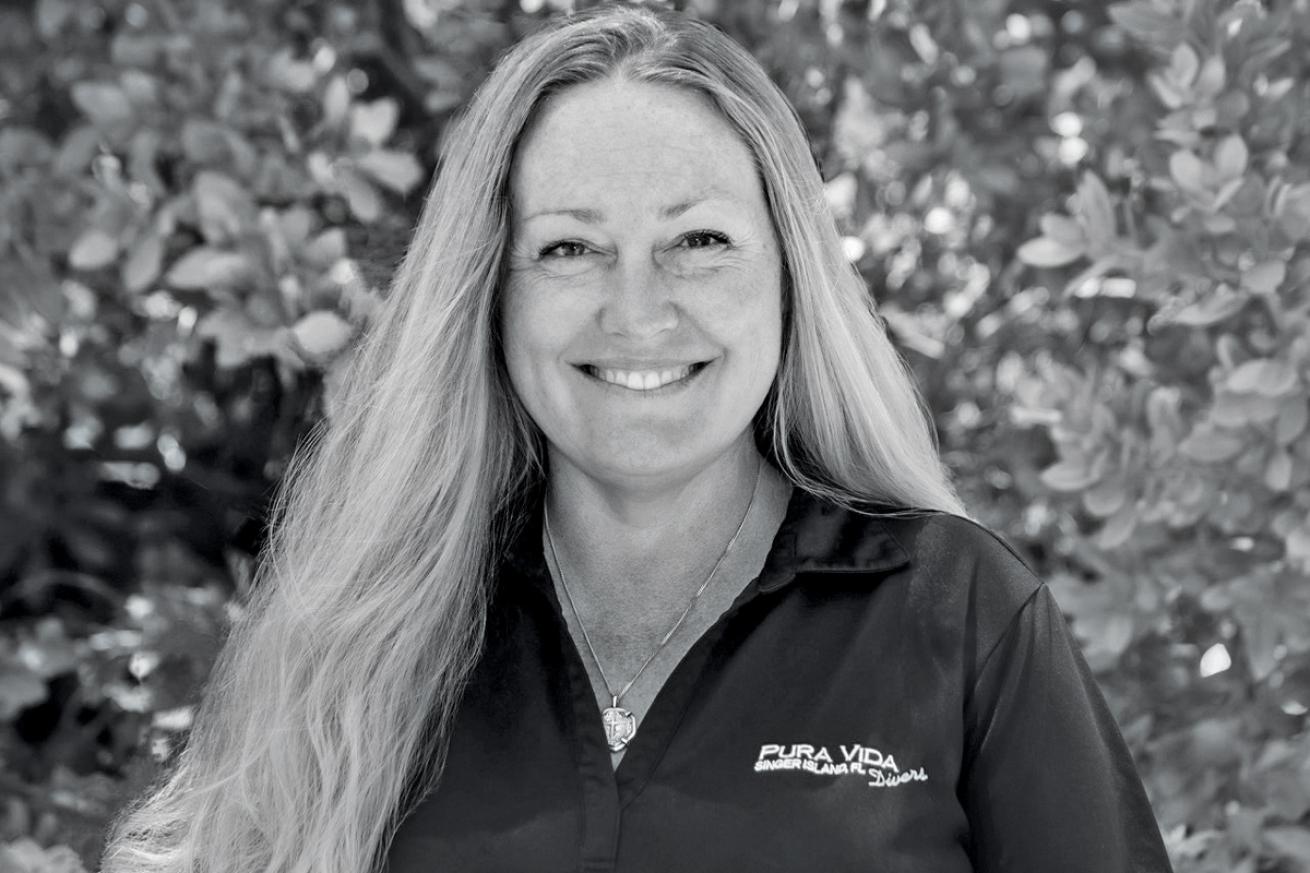
Lazaro RudaA portrait of Shana Phelan.
Year Dive Certified: 1992
Age When Certified: 16
Dive Certification Level: PADI IDC Staff Instructor
Words To Live By: “The purpose of life is not to be happy. It is to be useful, to be honorable, to be compassionate, to have it make some difference that you have lived and lived well.” —Ralph Waldo Emerson
In March 2022, the Florida Fish and Wildlife Conservation Commission (FWC) ruled to lift a 32-year moratorium on the goliath grouper fishery in Florida, much to the disappointment of divers and conservationists who have advocated tirelessly to safeguard the protection of these beloved and vulnerable animals.
Shana Phelan, a dive shop owner and a leading voice in the grassroots effort to keep the fishery closed, has spent the past 10 years attending commission meetings, gathering public comments and helping to prove that goliath grouper are worth more alive than dead.
Although the fishery is set to reopen in 2023, Phelan’s efforts have persuaded the FWC to enact exceptions for aggregation sites, and she’s ready to continue her quest to further protect South Florida’s goliath grouper population. For her advocacy and relentless spirit, Shana Phelan is our November Sea Hero.
Q: How will the reopening of the goliath grouper fishery affect your work?
A: I first became involved with goliath grouper in 2012 as part of our local diving association. I’ve worked toward keeping them under protected status while simultaneously working to elevate their status and importance to the diving community and our local government. I was disappointed with the decision to open a goliath grouper harvest after all these years. I had hoped their iconic status in the diving community and their high economic value would be enough to keep the species protected in perpetuity. However, I was pleased that the FWC commissioners kept harvesting closed in the counties where goliaths aggregate for spawning: Martin, Palm Beach, Broward, Miami-Dade and parts of Monroe.
Q: How will you continue to advocate after the FWC ruling goes into effect?
A: This month, Pura Vida Divers is launching a citizen-science research study to quantify the goliath sightings at our local dive sites throughout the year. The research team will periodically dive with customers to facilitate education while in the field. Additionally, we requested the FWC create spatially protected areas (SPAs) at some of the local aggregation sites to prohibit any fishing activity during aggregation season. The grouper are exhibiting signs of fishing trauma (eye barotrauma, broken jaws, entanglement in heavy fishing gear, etc.) from catch-and-release activities. Hopefully, implementing SPAs will further protect the spawning population from catch-and-release fishing.
Q: Is there still hope for Florida’s current and future goliath grouper?
A: It will be difficult to fully protect the population now that the moratorium has been lifted. Our diving community sees fewer goliaths each year during aggregation time. With habitat loss and fishing pressure, it’s an uphill battle. We’ll keep pushing for protection where we can, and we will do our part to aid in the research needed to fuel future policy and fishery decisions.
Q: What has caused the noticeable population decline in recent years in Palm Beach County? How will the new legislation affect the existing population?
A: Populations at all aggregation sites in Palm Beach County are diminishing, which is extremely alarming. Unfortunately, there’s not been a valid stock assessment for comparison over time. I am hopeful the SPAs will prevent fishing injuries to the older fish, but the open harvest of the juvenile population in the majority of Florida waters could be problematic for future recruitment.
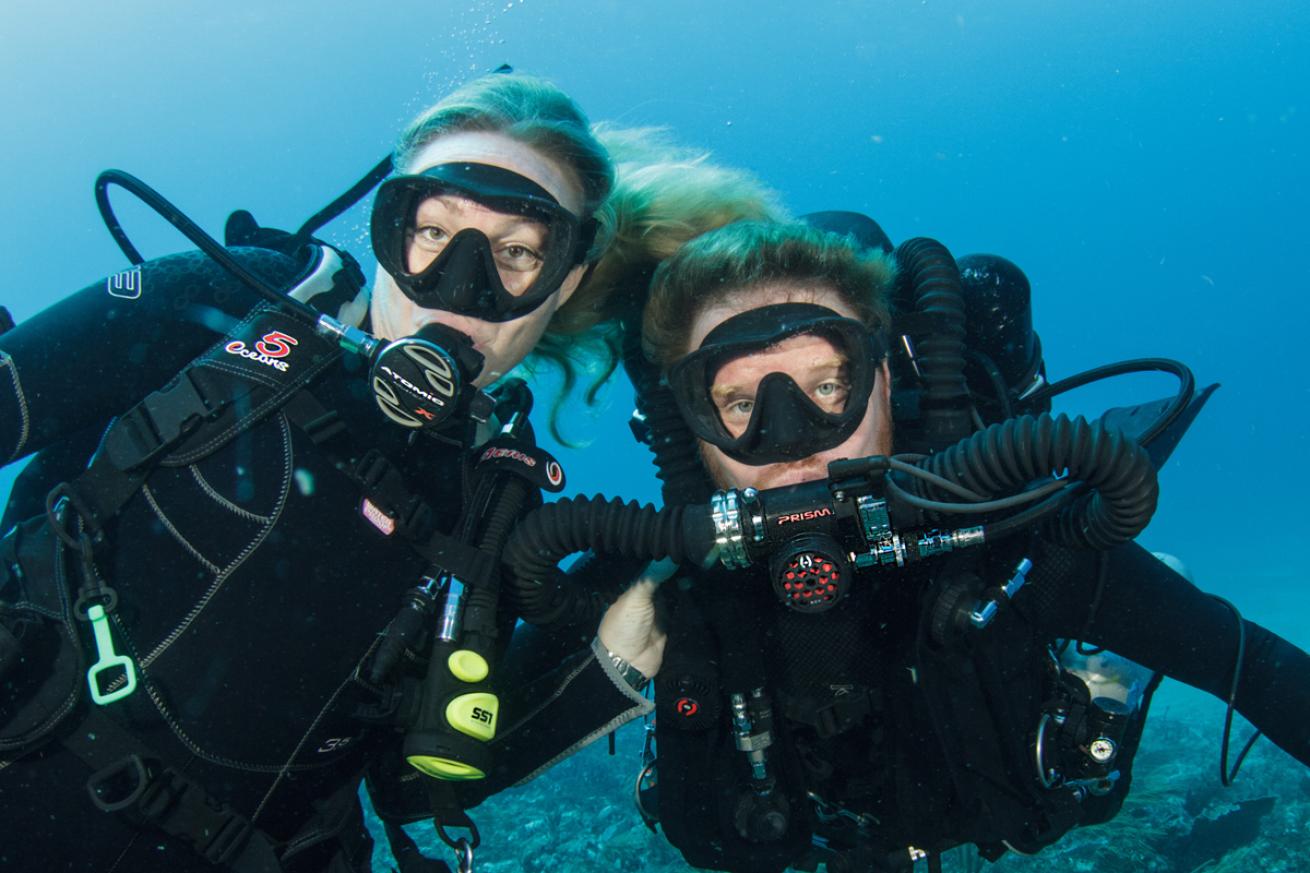
Lazaro RudaPhelan and her husband, Dean.
Q: As co-owner of Pura Vida Divers, what are you doing to encourage customers who dive with you to become more than tourists?
A: Our company and culture are deeply rooted in our personal core beliefs and values to give back more than we take, to be problem solvers, and to advocate for continued stewardship of the natural world. Annually, we conduct offshore reef cleanups from boats and at Blue Heron Bridge. We host monthly events designed to educate our community on conservation initiatives and research opportunities so they can become informed, involved and invested. We run eco-snorkel camps to educate our youth on water conservation and the marine environment, and we fundraise and donate to various organizations including Reef Environmental Education Foundation, PADI AWARE, Ocean Conservancy, and Beach Bucket Foundation. We also coordinate PADI AWARE courses around seasonal wildlife and partner with other like-minded organizations to improve the planet and our ocean systems.
Q: What are the greatest challenges in marine conservation today?
A: Over the past few generations, humans have disconnected from their natural world. Advances in healthcare, technology, industry and innovation, while incredibly important, come at a cost. We’ve lost what I call our natural identity, how we understand and interact with our natural world. Trying to educate communities on natural systems, how our actions affect those systems, and what role we play in it all, is a challenge, but one I’m dedicated to. Science is frequently misunderstood and constantly questioned. Science only provides answers to how our natural world functions. We still have to take that information and decide what’s important to us and how it gets translated into actionable policy. Having avenues to connect and engage scientists, policymakers and the general public in a meaningful way is more important than ever.
Q: You were also instrumental in keeping the renowned Blue Heron Bridge dive site open and protected from aquarium collectors back in 2018. What ongoing work is required to uphold the dive site's preservation?
A: There were several people instrumental in making that happen, which was wonderful. For now, BHB remains protected from collectors, and I don’t expect that to change in the future. Blue Heron Bridge needs thoughtful and responsible divers acting as good stewards while at the dive site. To help with this, I co-developed a PADI Blue Heron Bridge Distinctive Specialty course offered at Pura Vida Divers to encourage divers to better protect and enjoy the site. Pura Vida Divers acts as the “Adopt A Park” sponsor for Phil Foster Park/BHB and hosts 10 cleanup events a year. Some are shore-based and some are Dive Against Debris reef cleanups. We report all cleanup data to the Ocean Conservancy, which for over 35 years has collected marine debris data and worked for trash-free seas. During the recent cleanup in September, we collected over 130 pounds of trash from the BHB shoreline!
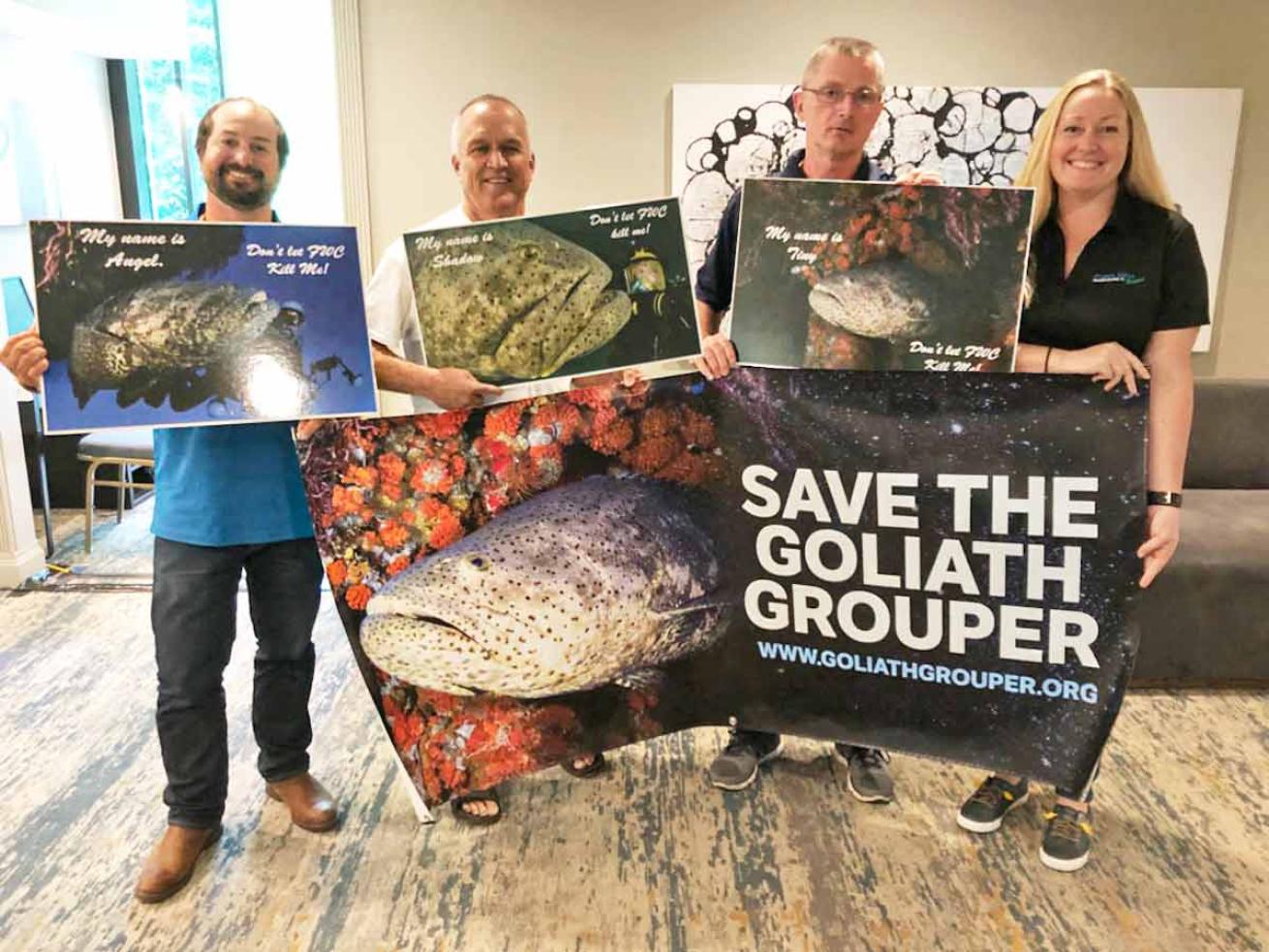
Shana PhelanPhelan and fellow goliath grouper advocates make a statement at an FWC meeting.
Q: What's been your most satisfying moment?
A: That’s tough. Probably watching my daughter grow into the human she’s becoming. In her 13 years, she’s already becoming an advocate in her own right. She’s started an endangered species pencil drawing “campaign,” and she plans to turn it into a business where the proceeds benefit endangered species nonprofits or organizations that she thinks are making a difference in combating species loss. I’m continually blown away by her creativity and character. And I love being in the water with her. We started her snorkeling at age 4, and now she’s an Advanced Open Water diver. We [cage] dived with great whites in Guadalupe when she was 9, snorkeled with whale sharks in Mexico at age 10, and dived in Bonaire last year. Plus we snorkel with Manatees in Florida every winter, and enjoy our offshore reefs and BHB here in Palm Beach when we can. Unbelievably blessed to have her as a dive buddy!
Q: Who are your "sea heroes"?
A: I have so many! Dr. Sylvia Earle was my original Sea Hero and one of the main reasons I wanted to become a marine biologist. She was the keynote speaker for my master's degree graduation ceremony, and when I met her in person I was completely starstruck and could barely get two words out—both of which are rare for me! My local friend Michael Patrick O’Neill, who does so much to educate thousands of school children on marine conservation each year. My friend Becky Kagan Schott, who explores and photographs the most amazing underwater environments and is an inspiration for all of us female divers to push ourselves to do more. Dr. Christina Zenato for her love of diving, her shark advocacy and her beautiful soul. Ned and Anna Deloach, my fellow “fish nerd” friends, who do so much for research and education and are some of the best people you could ever hope to spend time with. And probably most importantly, my local community of business colleagues and divers, many of whom are scientists, advocates, photographers, and conservationists doing what they can every day to make a difference. I’m continually amazed at all of the work collectively being done.
Q: Is there anything we did not ask that you would like readers to know? Tell us what's important to you!
A: My director of marketing (and friend) Melissa tells me I’m a terrible self-promoter, and she’s right. I’m usually a “behind the scenes” person, working hard on community projects to benefit the local diving community or the environment in some way. So here are a few things:
- I began conservation work with endangered sea turtles back in the early 2000s. I co-authored a Marine Turtle Trauma Response Field Guide for WIDECAST, which was meant to be a first response guide for the greater Caribbean region when dealing with injured sea turtles with limited resources. To my knowledge, it’s still in use today.
- I’ve been a dive representative on the Southeast Florida Coral Reef Initiative (SEFCRI) team since 2012 and now serve as the vice chair representing the Scuba Diving Stakeholder group. SEFCRI is a local action strategy that brings together nongovernmental organizations and governmental agencies in an effort to strategize and implement priority actions needed to reduce threats to the coral reef communities of Southeast Florida. Basically, a great Initiative bringing all kinds of stakeholders together to work on South Florida Coral Reef issues and instrumental in the formation of the Kristin Jacobs Coral Reef ECA.
- I represent the diving community on the Save Our Inlet Coalition, a nonprofit organization formed initially in opposition to a large Inlet Expansion project. The Town of Palm Beach, the Palm Beach Civic Association, and many business leaders and community members make up this coalition.
- I serve as the administrator for the Palm Beach County Diving Association, which to my knowledge, is one of the last Diving Associations in existence. I facilitate monthly meetings, coordinate our annual fundraiser, work as a community liaison with our local government and tourism agencies, and generally try to keep the membership informed on local topics affecting our industry.
- I served as the Diving Representative on Palm Beach Counties Artificial Reef and Environmental Enhancement Committee for several years, which was a local stakeholder committee discussing artificial reef projects and initiatives with our local government.
- I was awarded the Marine Conservationist of the Year by the Florida Wildlife Federation this past June. This was mostly for my role in the goliath grouper issue and my efforts to get other stakeholders and environmental groups, foundations, etc., involved in the protection of goliath grouper.
- And finally, I was appointed this year to the Tree Board of the Town of Lake Park (my neighborhood). As a board member, we work with the town to study, develop and counsel our community development department on tree issues as well as enhancing and increasing the tree canopy in our town. We’re currently working on updating the list of approved plantings to encourage natives and Florida approved planting, and to eliminate invasive plant species in our town.
Each Sea Hero featured in Scuba Diving receives a Seiko SRPD43 watch valued at $525. For our December issue, judges select a Sea Hero of the Year, who receives a $5,000 cash award from Seiko to further their work. Nominate a sea hero at /seaheroes.

